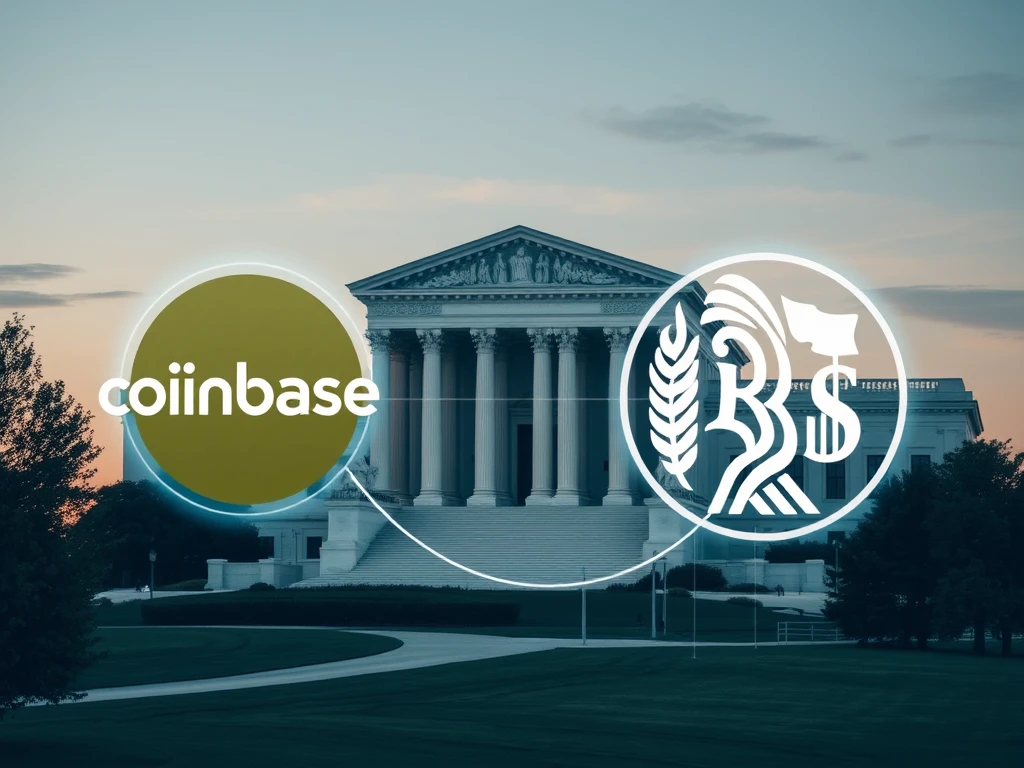IRS Access to Coinbase User Data Stands After Crucial Supreme Court Refusal

A significant development for cryptocurrency users in the United States unfolded recently when the Supreme Court declined to hear a crucial case. This decision leaves a lower court ruling in place, impacting how the IRS can access Coinbase user information. For anyone holding or trading crypto, understanding this outcome and its implications for crypto tax and user data privacy is essential.
Understanding the Case: IRS vs. James Harper
The core of the issue stems from a lawsuit filed by James Harper, a Coinbase user. Harper took legal action against the IRS after the exchange provided his transaction data following a broad “John Doe” summons. Harper argued this constituted an unlawful search and seizure, violating his Fourth Amendment rights, which protect against unreasonable searches.
Here’s a quick look at the case progression:
- 2020: James Harper files a lawsuit against the IRS after Coinbase turns over data based on a John Doe summons.
- 2021: The US District Court for the District of New Hampshire dismisses Harper’s case.
- Later: The First Circuit Court of Appeals upholds the lower court’s decision, ruling against Harper.
- Recently: The Supreme Court denies Harper’s motion to review the case, allowing the First Circuit’s ruling to stand.
This final decision by the Supreme Court means the lower court’s ruling is the current legal precedent regarding the IRS‘s ability to obtain user data from platforms like Coinbase via summons.
What This Means for User Data and Privacy
The outcome has direct implications for digital privacy rights, particularly for crypto users. With the lower court ruling affirmed by the Supreme Court’s refusal to review, the precedent supports the government’s ability to compel exchanges to provide user data.
Coinbase itself weighed in, filing an amicus brief supporting Harper’s petition. The exchange argued that if the lower court ruling stood, it could allow the government to extensively track past and monitor future crypto transactions. Coinbase’s Chief Legal Officer, Paul Grewal, emphasized that this issue extends beyond crypto, potentially affecting data held by banks, phone companies, and ISPs, suggesting users should have similar privacy for digital accounts as they do for physical mail.
Increased Scrutiny and Crypto Tax Reporting
The backdrop to this legal battle includes increased attention from the IRS on cryptocurrency transactions. Recent reports indicate a significant rise in crypto users receiving warning letters from the tax agency.
According to crypto tax software company CoinLedger, there was a substantial increase in users mentioning IRS letters in support chats, suggesting more letters are being issued. While these letters don’t automatically indicate wrongdoing, CoinLedger noted that recipients are often individuals known to the IRS through John Doe Summonses issued to exchanges such as Coinbase and Poloniex. This highlights how data obtained via summonses directly contributes to the agency’s enforcement efforts and focus on crypto tax compliance.
Conclusion: Navigating the Landscape
The Supreme Court‘s decision not to hear the Harper case is a significant moment, solidifying the legal standing of the IRS‘s methods for obtaining user data from cryptocurrency exchanges like Coinbase. While privacy advocates express concern, the ruling reinforces the need for crypto users to be diligent about crypto tax reporting. The landscape now clearly indicates increased government visibility into digital asset transactions, making accurate tax compliance more critical than ever.








